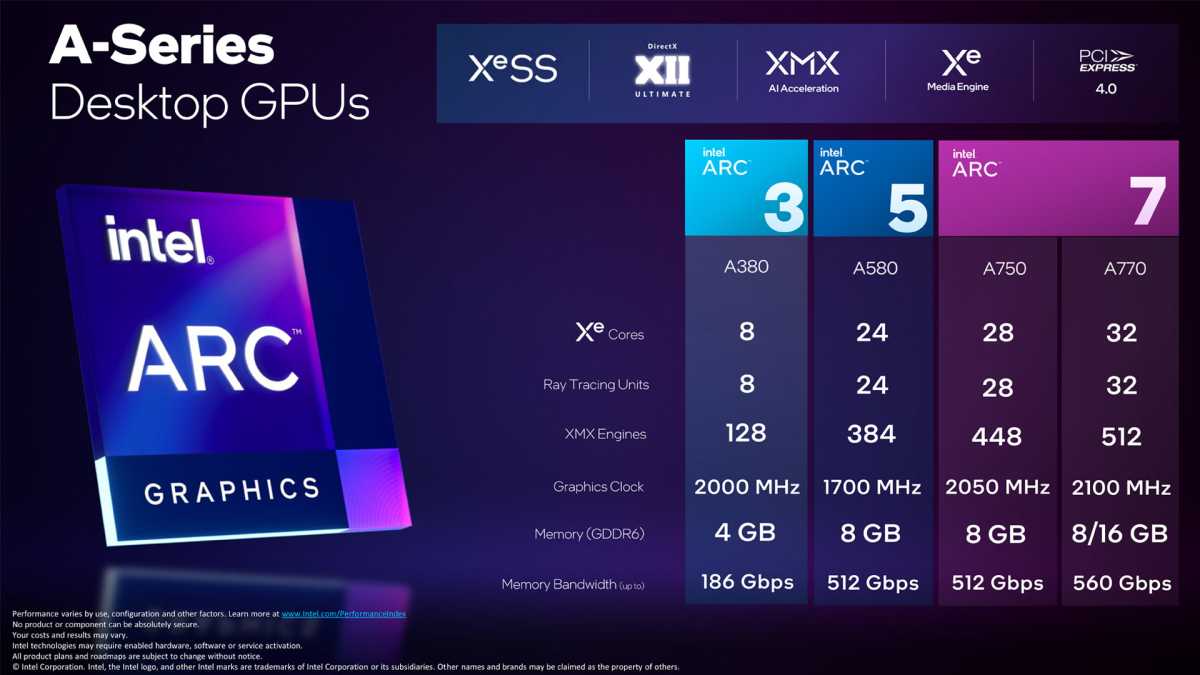It seems like we’ve been waiting a dog’s age for Intel to release its Arc series of desktop graphics cards, with only one sporadically available in western markets at the time of writing. Intel still insists that they’re coming in the latter part of the year, even as that part continues to dwindle away. The latest tidbit of info comes in the form of a series of basic specs now made official, specifically for the mid-range and high-end cards we’d only seen named before.
In addition to the semi-released budget card the Arc A380, we now have more concrete details for the mid-range A580 and the high-end A750 and A770. The number of Xe GPU cores is one of the bigger differentiators: going from the A380 to the A580 the core count triples from 8 to 24, with the higher-end cards going up to 28 and 32. Ray tracing cores follow suit. Video RAM jumps from just 6GB on the A380 to 8GB on the other three cards, with an upgraded 16GB model of the A770 also planned.

Intel
GPU shoppers hoping Intel would step up to the Nvidia-AMD duopoly were disappointed by the lack of power in the low-end A380, as the $140 card competes most directly with super-budget GPUs like the Radeon RX 6400. But with these official specs we can see that even the mid-range Arc 5 series will be a significant step up, with triple the XMX engines for AI interfacing operations and nearly triple the memory bandwidth. An Intel representative said that its GPU clock speeds are shifting from fixed to dynamic, so the listed specifications are an approximation based on typical workloads.
Whether that translates to more competitive cards at the mid-range and high-end, we’ll have to wait and see. While Intel has talked a big game in terms of pricing and value, even its own press communication has admitted that the company is far behind Nvidia and AMD in terms of video driver support (though Arc’s content creation chops look pretty ferocious indeed).
Frankly, Intel needs to get off its rear end and get these cards on retail shelves already — PC gamers aren’t going to wait forever. It’s already blown the incredible advantage it would have had by releasing the Arc series during the GPU rush of the pandemic, and Nvidia’s RTX 4000 series is just over the horizon. Intel is at a real risk of trying to sell last-gen tech against a series of brand new designs, especially if Nvidia and AMD can get their more mid-range cards out quickly.




